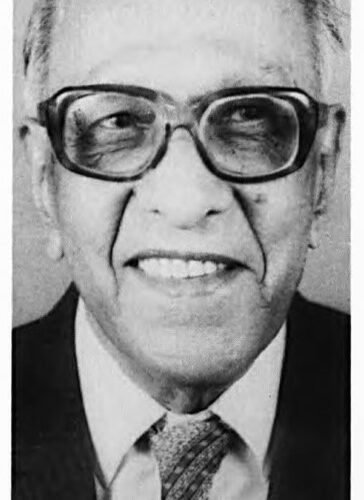

The basic human value is freedom, which means the right of a human being to live a human life.
V.M. Tarkunde, ‘Towards a Fuller Consensus in Humanistic Ethics’ in Humanist Ethics: Dialogue on Basics, ed. Morris B. Storer (1980)
V.M. Tarkunde was a prominent humanist, lawyer, and lifelong champion of human rights. With M.N. Roy, he founded the Radical Humanist Movement in India, rooted – as he told the New Humanist in 1994 – in spreading ‘the humanist-democratic values of freedom, rationalism and secular morality among the people’. An Honorary Associate of the Rationalist Press Association, Tarkunde was also a board member of Humanists International for more than four decades, and was awarded the International Humanist Award in 1978.
The goal of Indian radical humanists is to bring about a democratic transformation of society. For this purpose we have to develop a movement based on humanist values by working with the people at the grass-roots level, so that a genuinely democratic state can be created.
V.M. Tarkunde in ‘An Interview with V. M. Tarkunde: The Grand Old Man of Indian Humanism’ by Levi Fragell, Free Inquiry, Fall 1996
Vithal Mahadeo Tarkunde, known as V.M. Tarkunde, was born in 1909 in Maharashtra, India. Tarkunde was raised in a family deeply committed to social reform and education. He told an interviewer in 1996 that his earliest memory was his family being ex-communicated within their village when his father refused to observe untouchability. In 1994, Tarkunde told the New Humanist he had been ‘inclined to be rationalist from the age of 13’ and ‘became an atheist from the age of about 20’, confirmed by his growing scientific understanding.
He studied first in India, and later in London, where he qualified as a barrister at law in 1931. While in London, he also attended lectures at the LSE. On returning to India he was, in his own words:
like many young persons of my generation, an ardent nationalist. My nationalism was, however, not negative. I wanted the disappearance of British rule in India in order that it may be replaced by a genuine democracy in which power would be vested in the hands of people living in villages and towns. With this perspective, I worked in rural areas for seven years.
V.M. Tarkunde in New Humanist, February 1994
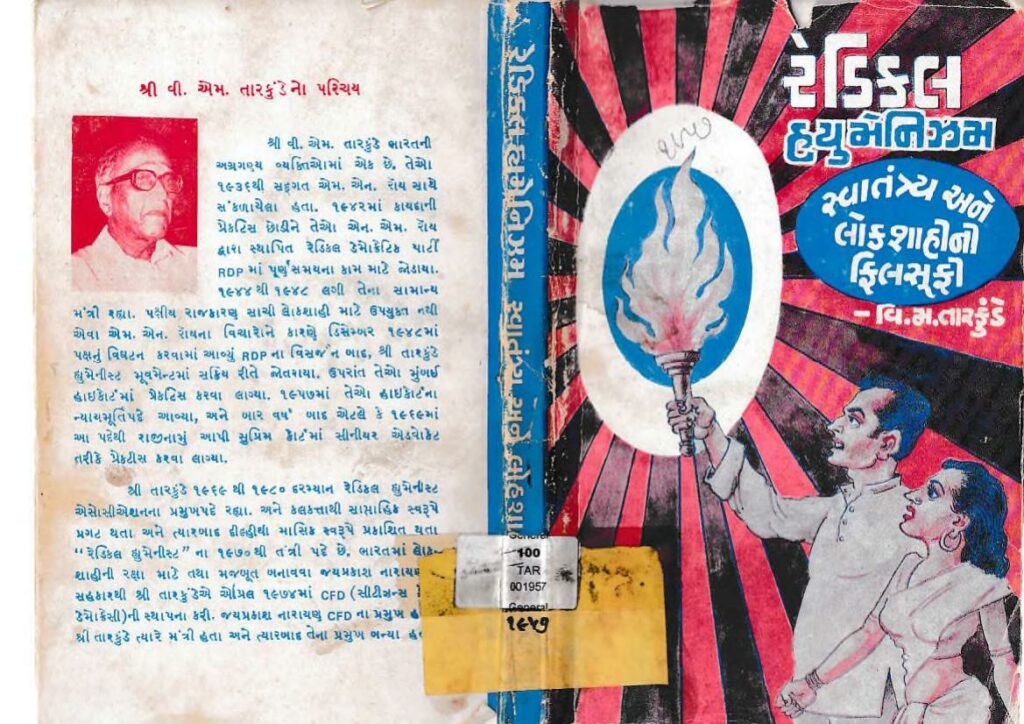
Tarkunde became close to fellow rationalist and reformer M.N. Roy, joining and later becoming general Secretary of Roy’s Radical Democratic Party. After some years of full time political work, Roy and Tarkunde became disillusioned with the idea of political parties, dissolving the Radical Democratic Party and founding the Radical Humanist Movement.
After Indian independence, Tarkunde returned to law, and was made a judge of the Bombay High Court in 1957. He later joined the Supreme Court of India, and played a leading role in advocating for the rights of marginalised communities and promoting legal reforms to safeguard individual freedoms. Tarkunde was a founding member of the People’s Union for Civil Liberties (PUCL), an organisation dedicated to defending civil liberties and protecting human rights in India. Through PUCL, Tarkunde fearlessly challenged government policies and actions that infringed upon civil rights.
In 1978, Tarkunde was awarded the International Humanist Award in recognition of his outstanding achievements and contributions to the progress and defence of humanism. He continued his work for civil rights well into old age, dying at 94 on 22 March 2004.
Influence
V.M. Tarkunde was a man of vision rooted in idealism. He believed that humanism was the fountainhead of democratic ethos; he wanted this to be the basis of civil society. He symbolised the spirit of humanism and human rights.
Ramdas Rao, Secretary, People’s Union for Civil Liberties in ‘Tarkunde Remembered’, PUCL Bulletin, May 2004
An internationally recognised humanist and activist, Tarkunde has been called the ‘father of civil liberties in India’. At a memorial meeting following his death, under the auspices of two of the organisations he helped to found – the People’s Union for Civil Liberties, and Citizens for Democracy – he was remembered as:
a lovable personality with almost child like innocence; always with a smile on his face. He was a multi-dimensional colossus with a human heart and a humanist par excellence; a doyen, in fact, the pioneer of all civil liberties movements in India. In his death the country has lost a great crusader for liberty and individual freedom.
‘Tarkunde Remembered’ in PUCL Bulletin, May 2004
Tarkunde Remembered | PUCL Bulletin (via the Wayback Machine)
Our history | PUCL
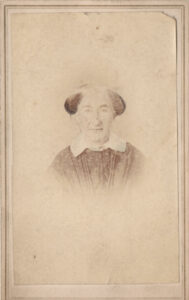
Margaret Chappellsmith was a devotee of the socialist and secularist ideas of Robert Owen, becoming one of the Owenite movement’s […]
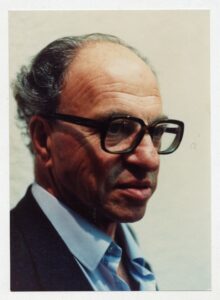
It is in service to others, it is as members of the community, that our existence lies. Hermann Bondi, Humanism […]
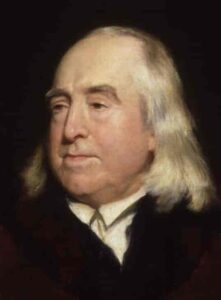
It is impossible that Theology can throw any light upon either morality or jurisprudence. Jeremy Bentham Philosopher and jurist Jeremy […]
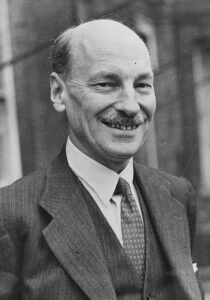
…having now exceeded the age of three score years and ten, I would say that up to the present I […]